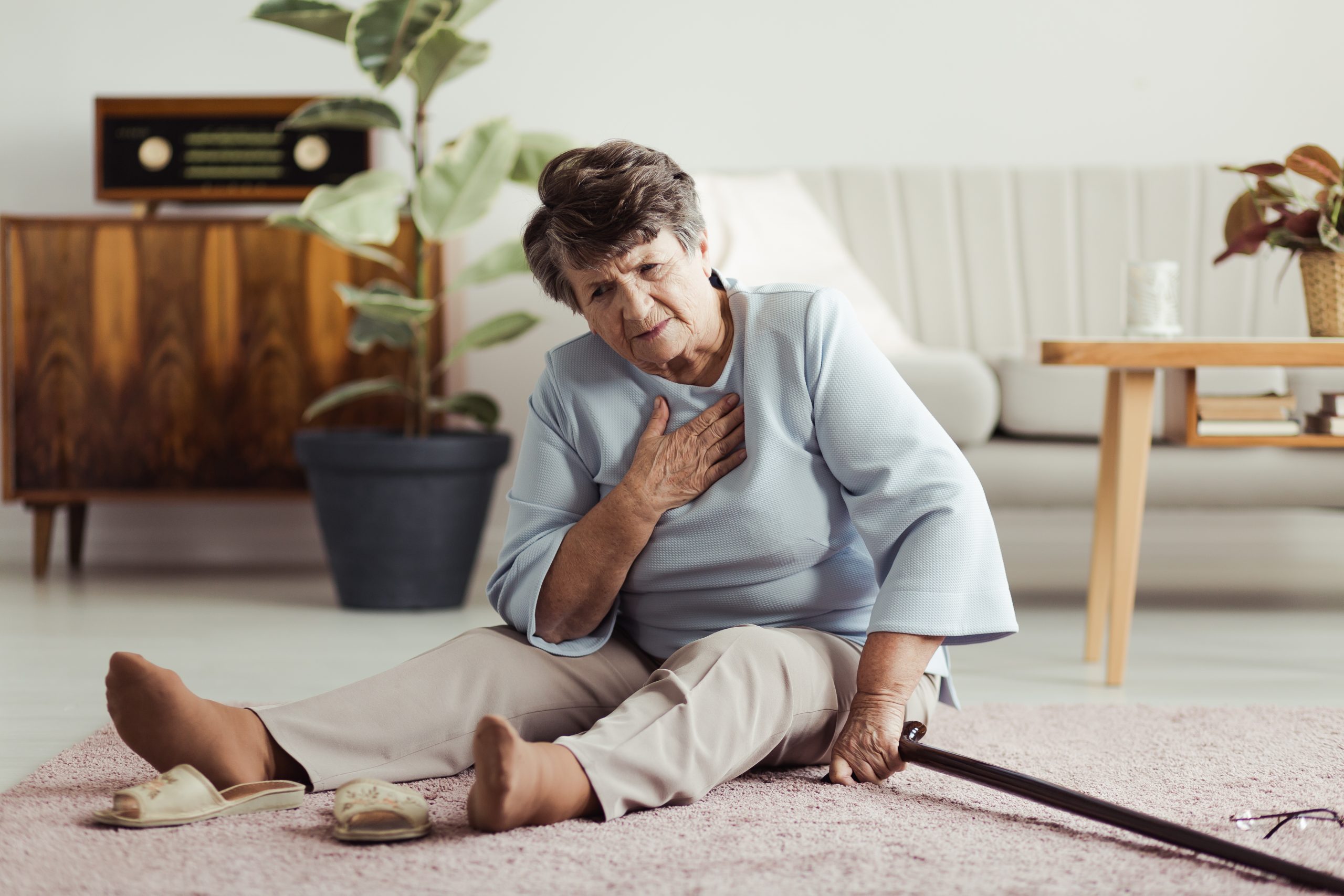
If you have an aging family member, you play a major role in helping them stay safe. This starts with understanding what causes elders to fall and steps you can take to help prevent or reduce your loved one’s risk of falling.
What Causes Elders to Fall?
Falls can happen anywhere, at any time, and to anyone. However, there are several reasons why the elderly population is more at risk. Notability, if the health of your loved one is impaired, and there are adjacent environmental hazards, these factors combine and contribute to the prevalence of such falls. Specifically, several factors cause elders to fall, including:
- Poor eyesight or hearing loss
- Illness and physical conditions
- Inadequate lighting
- Clutter
- Insufficient maintenance
- Medication side-effects
- Surgical procedures
- Inactivity
- Improper transfers
- Lifestyle and behaviors
Whether your loved one is living in their own home, with you, or in a nursing home, certain actions need to be taken to prevent or control hazards. As elders age, there is not much you can do to prevent them from losing their hearing, eyesight, or strength, but there are ways you can help.
What Can I Do to Reduce My Loved One’s Risk of Falling?
Now that you are aware of the variety of factors that contribute to falls, it should be easier for you to help your loved one avoid them. Here are four steps you can take to reduce your loved one’s risk of falling.
Talk with Them
Have a conversation with your loved one to see if they’re worried about falling. Ask them if they fear falling or if they have thought about it. Most older adults recognize that they are at risk of falling, but don’t like to talk about it because it makes them feel anxious or uneasy. Others believe that they won’t fall or if they do, they won’t get hurt.
When you talk to your loved one, look out for signs of hesitation or agitation as these may indicate your loved one is concerned about falling. A good starting point to help relieve some of this tension would be to review Debunking the Myths of Older Adult Falls, published by the National Council on Aging (NCOA), which can help clear up several common misconceptions regarding elderly falls. For further help, reach out to a medical professional to discuss any programs or services that may benefit your loved one based on the problems they are experiencing.
Watch Out for Warning Signs
Pay close attention to your loved one’s actions. If you notice your loved one has trouble balancing when they get up from a chair or they constantly need to hold onto walls, furniture, or someone near them to walk properly, then it may be time to schedule an appointment with a doctor or physical therapist. In addition, if you notice that your loved one is squinting their eyes or has blurred vision, then you should take them to get their eyes checked.
Beyond these signs, it is imperative to ensure your loved one is in proper attire. Make sure they have comfortable and moveable clothing that is not so tight that it restricts them and not so loose that it can get caught on something. Adjustable and adaptive shoes are important as they help increase mobility and can help ease discomfort. Any glasses, canes, or other walking assistive devices should always be within your loved one’s reach.
Discuss Their Medications
Depending on whether your loved one has any underlying health issues, they may be taking prescription medications or over-the-counter medicines that affect their health. Some medications are known to have side effects that cause memory loss, dizziness, drowsiness, or mental instability. Discuss these side effects with a doctor or inquire about a new prescription or safer alternatives.
Perform a Walk-Through Safety Inspection of Their Home
Your loved one’s home may produce falling hazards. If there is clutter or objects all over the floor, your loved one can easily trip and hurt themself. There could be household problems such as a leak that could potentially cause your loved one to slip and fall. Performing a thorough walk-through to detect any hazards in your loved one’s home can help create a low–fall risk environment.
Additionally, there are plenty of effective and cost-efficient ways to keep your loved one out of harm’s way in their home. For instance, you can look for ways to brighten up their home with natural lighting or install light fixtures that are easily accessible to your loved one. If they have stairs in their home, make sure they are well lit and secured with railings. Also, you can install grab bars, shower chairs, or a hand-held shower nozzle in the bathrooms.
Was Your Loved One Injured in a Nursing Home Slip-and-Fall Accident? Call Dalli & Marino.
If your loved one was injured in a nursing home slip-and-fall accident, the chances of it being an “accident” are very slim. No matter what, falls should not happen in nursing homes. Nursing homes are aware of how vulnerable elders are and, by law, should be taking all necessary precautions to protect their residents. When nursing homes and caregivers fail to provide reasonable care, the consequences can be disastrous for elderly residents.
At Dalli & Marino, LLP, our experienced nursing home abuse attorneys strive to defend your loved one’s rights. Over the last 25 years, we’ve helped countless clients pursue compensation for their losses. Our NYC trail firm works tirelessly to make things right for our clients and has won millions of dollars for victims of nursing home negligence. For a free case evaluation, call 888-465-8790 or complete our contact form today.


